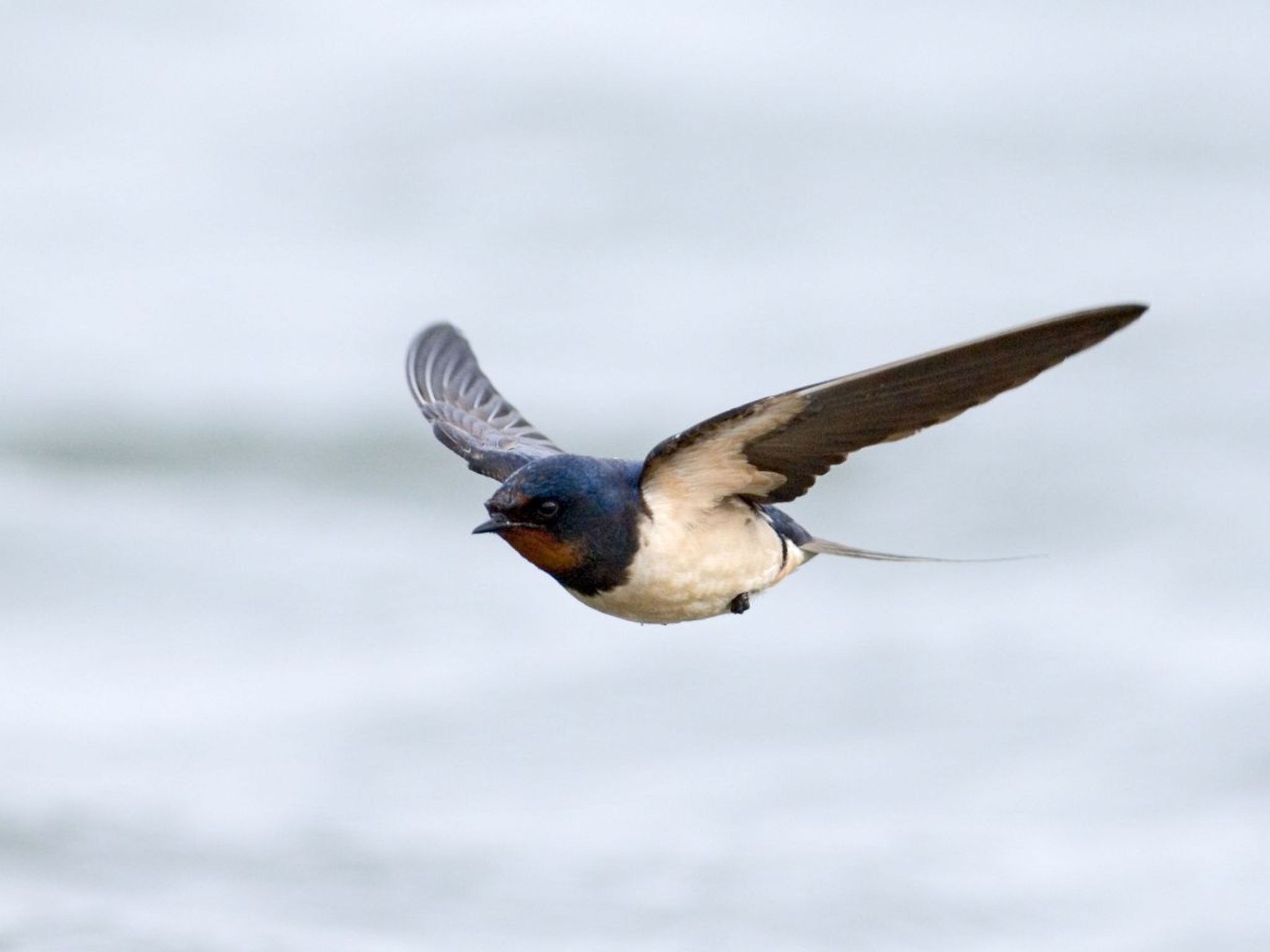Nature Studies: No swallows to make a summer in a world without birds
Like music, the love of birds may be part of what it is to be human

What would the world be without swallows, bringing the spring back with exuberant aerobatics, year after year?
Would it not be a much poorer place? Many people might think so, and many people might think the same if we lost our larks or our owls, our cuckoos or our song thrushes or towering birds of prey – and indeed, many did think so, when we recently lost even the humble and mundane house sparrows from our towns and cities, in a mystery still unexplained.
Human beings love birds. That may be a commonplace, but the sentiment is unusual. For this one group of 10,500 creatures, the modern descendants of the dinosaurs, we reserve a singular and intense affection which we by no means extend to lizards, say, or to fish, or to dragonflies, or even to the mammals which are our cousins.
It’s not hard to see why. We connect. Birds inhabit a world of light and colour, and communicate by sound, as we do, whereas mammals tend to inhabit a world of darkness, and communicate by smell, and there’s a world we cannot enter. Birds are like us in the way they reproduce – they court and pair up (generally), build a home, share parenting duties and raise the kids as a couple. And the bonus is that many are not only captivating in their behaviour and charming in their song, but beautiful – some, such as the birds of paradise from New Guinea, or the Asian pheasants, so dazzlingly, startlingly, exquisite that they are the loveliest organisms on the planet, lovelier even than the orchids.
The point about this trait – our love of birds – is that it seems to be universal in human society, like music is: the love of birds may be part of what it is to be human. Certainly, that’s the strong impression you come away with from Mark Cocker’s encyclopaedic and spellbinding examination of the relationship, Birds and People (Jonathan Cape) which is published next week.
This is a daring enterprise, attempting something very much out of intellectual fashion – a grand synthesis. Cocker has attempted to map out what birds mean, and have meant, to people the world over, dealing with 146 of the world’s 200 or so bird families, which covers 90 per cent of those 10,500 species.
The results are riveting. He is exhilarating on “the scintillating élan” of swallow flight but he is just as fascinating on what the impossibly beautiful birds of paradise mean to the peoples of New Guinea on the one hand, and what the domestic chicken, formerly the red jungle fowl, means to modern industrial society, on the other. He rhapsodises about hummingbirds and their glittering names (shining sunbeam, festive coquette, blue-throated mountaingem), yet unerringly picks out the appeal of more subfusc species: “”Most people who know dippers well invariably love them for their buoyancy that seems as much psychological as it is physical.”
This is a huge work of 430,000 words, yet the sparkling prose never flags, and it is marvellously illustrated by the photographs of David Tipling. So much for the enjoyment bit. But we are not talking coffee table here – this is a book with a purpose. It is written squarely in the consciousness of the remorseless assault on the natural world, and the ever-increasing loss of species going on all over the globe, and it spells out, for the first time, right across the whole class of birds, what these losses will signify, not just biologically, but to our souls.
It will last down the century, as the losses get steadily worse. Open its pages and you will get a sense of what it will truly mean, should the birds of paradise and the hummingbirds go – many are threatened – and should the bleak spring day ever dawn, and it might, when the swallows don’t come back.
Twitter: @mjpmccarthy
Join our commenting forum
Join thought-provoking conversations, follow other Independent readers and see their replies
Comments
Bookmark popover
Removed from bookmarks